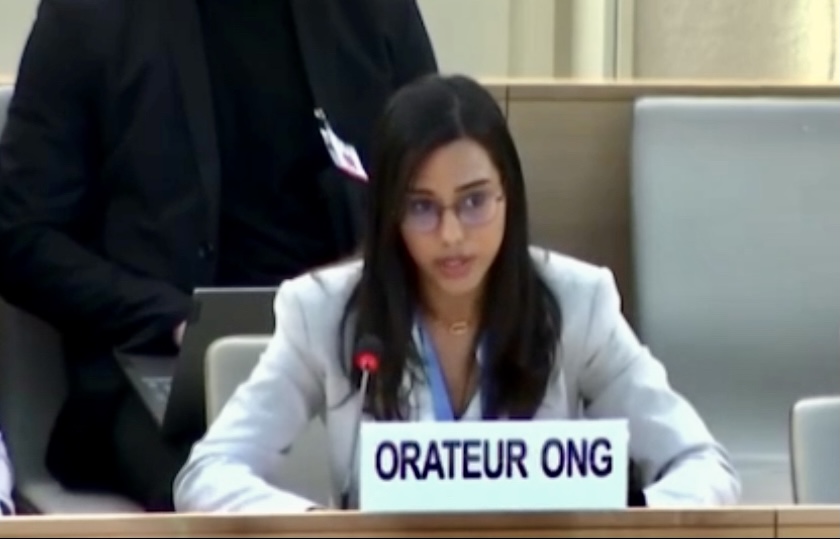On 29 March, QUNO Geneva engaged with the work of the Human Rights Council on systemic racism. Human Rights and Refugees Programme Assistant, Yasmin Beldjelti, spoke in both the Debate in commemoration of the International Day for the Elimination of Racial Discrimination and the General Debate Item 9 on Racism, racial discrimination, xenophobia, and related forms of intolerance.
During her statements, Yasmin called attention to the urgency of dismantling systemic and structural racism in migration governance. She also drew attention to the lack of awareness regarding racial discrimination experienced by migrants and the absence of disaggregated data by race, ethnicity, and migratory status.
Yasmin also highlighted the significance of seizing new opportunities to promote racial justice in migration governance, such as leveraging the UN Network on Migration’s GCM Talks and Migration Hub, along with the Permanent Forum on people of African Descent, and the 2024 Global Compact for Migration Regional Reviews. She stressed the importance of incorporating the expertise and experiences of migrants into focused discussions to generate practical and effective recommendations.
The Human Rights and Refugees Programme remains committed to continuing its work on the connections between racial justice and migration justice by using a lens of intersectionality, and aims to support and make use of the renewed efforts of the UN to dismantle systemic racism.
For further reading on racial justice in migration governance, please refer to our existing publications:
- Dismantling Systemic Racism in Migration Governance
- New Opportunities to Further Action on Racial Justice and Migration Governance







